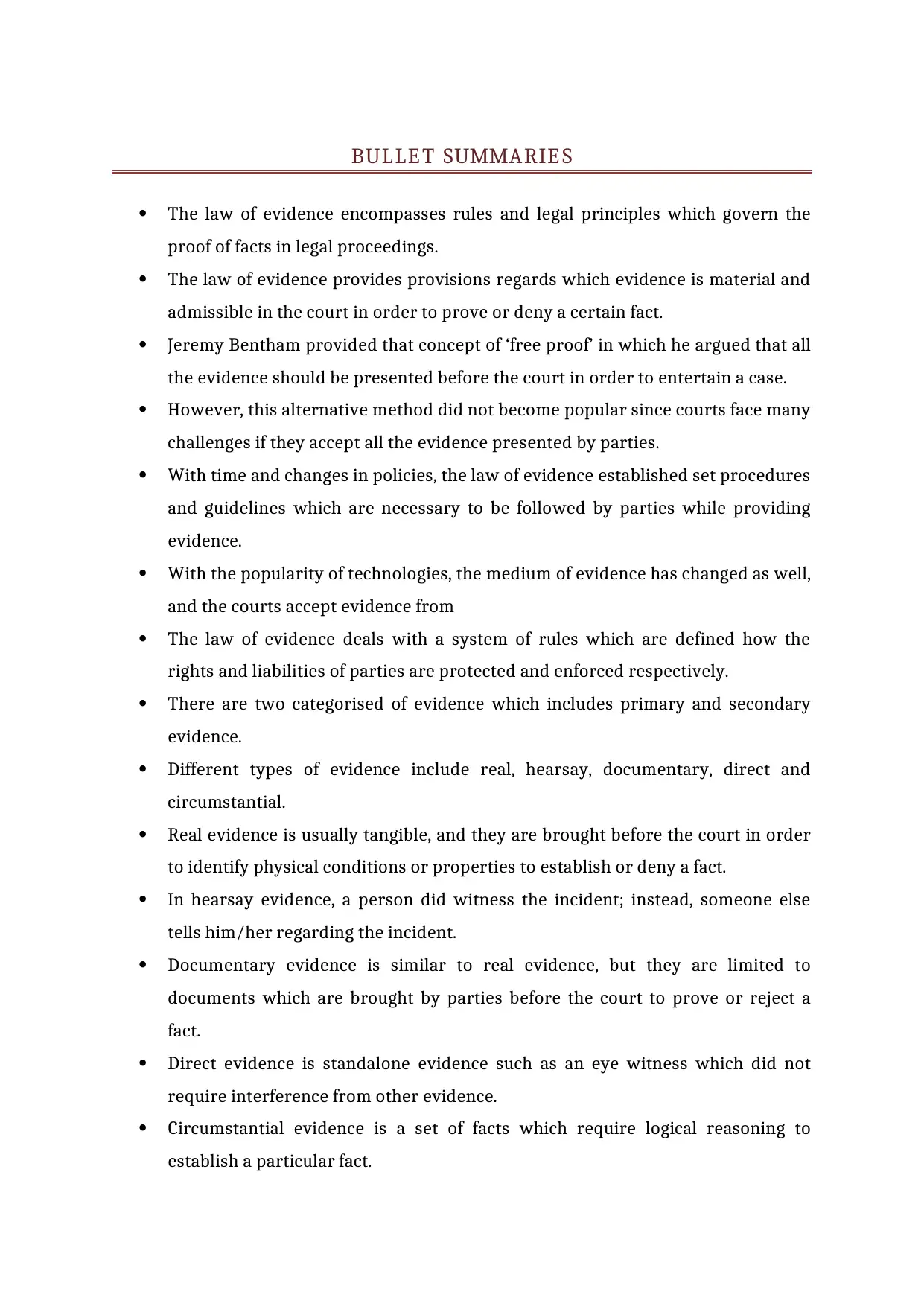Comprehensive Overview: Principles and Types in the Law of Evidence
VerifiedAdded on 2023/04/22
|1
|333
|451
Essay
AI Summary
This essay provides a comprehensive overview of the Law of Evidence, which encompasses the rules and legal principles governing the proof of facts in legal proceedings. It highlights Jeremy Bentham's concept of 'free proof' and explains why it's not widely adopted due to practical challenges. The essay details the established procedures and guidelines that parties must follow when presenting evidence, acknowledging the evolution of evidence mediums with technological advancements. It categorizes evidence into primary and secondary types, further elaborating on real, hearsay, documentary, direct, and circumstantial evidence, explaining their characteristics and roles in establishing or denying facts in court.






![[object Object]](/_next/static/media/star-bottom.7253800d.svg)